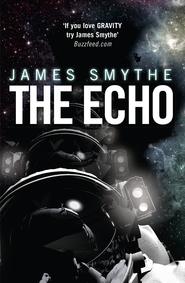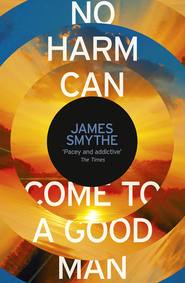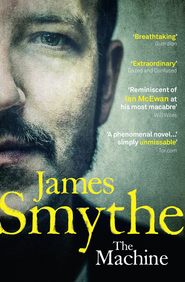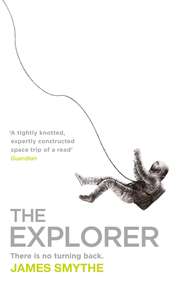По всем вопросам обращайтесь на: info@litportal.ru
(©) 2003-2024.
✖
I Still Dream
Настройки чтения
Размер шрифта
Высота строк
Поля
Is it the same?
I pulled the cable. She tilted her head back in that way she did, like she wanted to test that the muscles – the spine – was working properly. Like it was fused. Those wrestlers you see on television every now and again, when they do movies. I hadn’t watched wrestling in years, but then I would see them every now and again, and it would be like they’d had their necks turned into something else. The place they attached to the body fused with something else. I remembered them when they were limber, and then suddenly they were like cheap toys. Fewer points of articulation.
‘Thanks,’ she said. There was less spite in there than I thought there would be. Still, whatever. Her hand went to her arm. I knew her tells. Every single one of them.
‘I had to make sure,’ I told her. Everything I said, I thought that she would retort. That is what I would have done. I would have snapped back some witty whatever, some pithy fuck-you about the things we had said and the thing that had happened. For my part, it was like I was setting up the jokes, and she couldn’t be bothered to deliver the punchline.
I heard Park ask Laura what was up with me. She waved him off. She waved her hand, and I caught it through the blinkers. ‘Has something happened?’ Park asked her, and I shut my eyes, because I didn’t want to see even a fraction of her reaction.
SCION was our baby. Adopted, sure, but that doesn’t change how much you care for it. And the best part: it was an orphan, the original programming team lost to the sands of time. Myself and Park, both recruited from MIT, but we didn’t know each other when we arrived. Different tracks, which helped when it came to the interview, to getting the job. Different skill sets. I knew him to stare at him across a room, and to think about how different we were. That was the extent of our relationship before. He told me once that I bought him a drink on his birthday. He remembered that, but I was sure it couldn’t have been me that did it. It didn’t seem like something I would have done, not for somebody I didn’t know.
Mark Ocean came to us. He would do the recruitment fairs, throw his head around velvet curtains drawn up around a booth, like it was an entrance into the secret service. What was behind the curtain was important, that was clear: but, then, a few companies used that tactic. Selling something as if it’s worth more than it is. It’s all magic, all smoke and mirrors. Ocean would only show his software to a few people, if he thought they were right. Otherwise it was a standard Bow OS setup. SCION wasn’t running for most people. You could peek behind the curtain, and it looked like absolutely nothing at all.
Ocean’s pitch to me was – I remember thinking how strange his accent was, how it was a halfway house, the accent of a country that couldn’t exist – that he understood that I wanted to change the world. He told me that. Said, You want to, and I couldn’t argue with him. Who doesn’t want that? You want to leave something indelible, he told me. This, he said, will change the world. It will change everything. It’s called SCION, and it’s the future.
He was a snake-oil Steve Jobs, even in those days, and I didn’t know how to deal with him apart from be slightly impressed. One of those people who, when you’re in the room with them, you can’t look away.
I remember when I walked in. I asked him: How do you pronounce the name of the company? Because everybody has different ways. It’s like, there’s no single right way on the Internet. Like, GIF; where even the dude who came up with GIFs gets it wrong.
We pronounce it bow, he said, like the gesture of servitude. Or the front of a ship. I told him that I had always said it was bow, like the thing you tied in the rope to hold the ship to the anchor. He said he liked that. That it was clever, quick. But he was lying, because that word was so mispronounced. You would hear people saying it both ways: like Bowie. Everybody had their own way. Wasn’t until I met Laura Bow that I realized Ocean was wrong, and I had it right all along.
He said to me, We’re making this thing, and I’d like you to take control of it. Hold its hand. I said, I’ve never held the hand of software before, and he said, Well, that’s because there’s never been software like this before.
* * *
The girl from the bar’s name was Lola; or, it wasn’t, not really, but she said it was, because she did that thing from the song. Like her own chat-up line; like the song. My name is Lola; Ell oh ell eh, Lola. She was taller than Laura, a good few inches taller. Slightly thinner. Not as well proportioned. Everything was held against the scale of Laura, those first few days. Weeks, months. Lola was different, and maybe that’s okay. I asked her if she wanted Cherry Cola, because that’s the meet cute of it all: the story we one day would tell our grandkids. I wouldn’t be telling that story, but she would want the story; she’d want to run through the whole thing while we flirted. I knew that Lola was a one and done, I knew it, and likely she knew it as well. Her fingers stroked my arm when I told her what I did for a living, and she said – honest to God – that I didn’t look like a programmer. She said, ‘I meet a lot of people who work out in Silicon Valley, and they’re never like you.’ I was wearing my contacts, even if they were going to dry out in the air conditioning. I could feel them against my eyelids when I blinked, like somebody gently pressing on my eyes. Willing them to stay closed. ‘You don’t look like them. Or act like them. They can’t talk, you know? They can’t make a decent conversation.’ Lola was a student, or had been a student and was going to be a student again; but in between her studying she was travelling the country, seeing the places she’d never seen. She was from North Carolina, and her accent had that twang that said she couldn’t shake the place. All she had to talk about was the places that she had seen, the people that she’d met. She’d been in the Bay area for four weeks, and she’d not spent a night where she wasn’t cruising the bars. ‘Because soon I’ll have to go home, and when I’m back there, Jesus, there’s nothing compared to this. This is where I want to live, when I’m done with everything.’
She asked me what I did exactly at Bow. We were under the tightest of the tight non-disclosure agreements, but I was drunk, and I was tired, and I wanted to feel good about myself. I said, ‘I’m on the artificial intelligence team.’
‘Like from that movie?’ I didn’t ask which one. There were lots of movies.
‘Yeah, kind of,’ I said, ‘but we’re making something that’s actually practical. Something that will help us in our lives, you know? That’s the aim.’
‘So it won’t blow up the world,’ and she had this sarcastic tone, this sarcastic tilt of her head when she said it, like this was all stuff she’d heard before.
‘I’m pretty sure blowing us up would count as a project failure,’ I said. ‘No bonus for me if that happens.’ I could be charming, when I wanted to be. I remembered being charming before I met Laura. Hard for your body, your mind, to forget that stuff. Like muscle memory.
Another drink, and another. Her fingers stroked the hairs on my arm, up and down; and all I could think, not even in the back of my mind, but right at the front, right there, was how Laura’s fingers, when she did that same thing, felt coarser, slightly. Like the skin on her fingers was slightly harder because of the beating on the keyboard. In the action, I missed that roughness.
We took a cab out to the Bow campus. I never feel like I’m drunk when I am. There’s a proxy, almost, between myself and my true state. You could show me a video of who I am when I’m at my worst and I wouldn’t believe it. It would be like watching some blockbuster movie, where you know the action isn’t real, but that doesn’t stop you wondering where the truth ends and the computer graphics begin. When she asked if we could go back to mine, because her room-mates were home, I told her we couldn’t. Laura’s things were there. I didn’t want to have Laura’s things around us. I didn’t want her touching them, picking them up, interacting with them.
But, I told her, there was somewhere else we could go. The campus had crash rooms. Ten bedrooms in each block, rooms where staff could stay if we were working late. Like those Japanese hotel pods, bigger than a bathroom, but not by much. A bed and nothing else, basically, then a shower and a toilet to the side that was carved out of one single piece of plastic. Like being on an airplane, only with a mattress on the floor. Not exactly romantic. She didn’t seem to care, and apparently neither did I.
We kissed in the back of the cab. Her lips, tighter than Laura’s; her teeth getting in the way of mine, her tongue set back and lifeless, as if she wanted me to probe her mouth. Something medical about it all. Clinical. She grabbed the back of my head, and she moved her hand as if this was some really passionate affair, capital P, but in reality it was more like acting. I got distracted. I looked around, while we were kissing. She had her eyes clamped shut, so I could see everything, albeit through the slight blur of the alcohol: the lights fading off through the windows, the peeling leather on the back of the passenger seat. My eyes caught the driver’s as he stared in the rear-view, watching us; and there was this moment where it was like, we both knew that we were in the wrong, that we were looking at something we shouldn’t have been looking at; then I shut my eyes, a long blink of relief for my lenses, and when I opened them he had his eyes back on the road, and Lola was still letting my tongue find hers, offering nothing back to me at all.
I paid for the cab. She stood on the path, staring at the buildings, the grass. ‘It’s like Chapel Hill,’ she said, but I didn’t say anything in reply. I didn’t want to have to tell her how wrong she was. Bow was nothing like some university. It was tight and organized, and there was nothing organic about the way it was designed. No old buildings, no statues or monuments or anything that had been there for generations and generations of students and alumni. It was glass and steel, built to be this perfect workplace, all breathing exercises and walking paths. Some architecture firm designed it, not knowing who it was going to be for, and Bow was the company who lucked out. They didn’t commission it. That was always the difference between Bow and somebody like Google or Apple. Those other companies built their own campuses, because they could. Bow was, in the scale of things, small fry. It’s easy to pretend now that they were always a big deal, but that’s bullshit memory retconning. Truth be told, even those who worked there didn’t rate them for the most part. We didn’t use their software in our spare time, and most of us had just gotten iPhones, instead of using the piece of shit that Mark Ocean was having us trial, thinking Bow could compete in that same space. ‘Where do we go now?’ she asked.
We walked across the lawn. There was a pirate ship on the sign that pointed towards the building I worked in, an embossment of a galleon above the doorway, set into a thick green metal plate – everything to do with our department was themed around pirates, because of the noise they make, the arr; which itself came from our abbreviated way of saying Research and Development, Arr andDee – but she didn’t notice those, and I didn’t explain them. I could feel the gulf setting in: that is, the time between when it’s decided that you’re going to go off somewhere and have sex, and the actual getting to the place to do the deed. It’s like spreading fog apart, because you sober up, and you start to wonder about whether it’s actually a good idea. I took her hand, body contact bringing the fog back together a little more, and I beeped in, getting her to run through with me at the turnstiles; then we went through the corridors, and I pointed out where things happened. She wasn’t really interested. I caught her putting her hand over her mouth, stifling a yawn. The energy required to stop me from yawning in reply was immense. I wished I had some coke or some speed or something. That would have made it easier.
The bedrooms were upstairs, in the East wing – God knows why we called them wings, because the building wasn’t big enough to justify that, not really – and the first couple of doors were locked. We went to the far end of the corridor. Not the one on the very end, because that was always taken first, always somebody staying in it, furthest away and quietest, but the seventh.
‘It’s nice,’ Lola said. Nice. The worst fucking word in the world. Mark Ocean had an embargo on it: Never use that word, because it’s so useless. It says nothing. Niceness is fundamentally blandness. Laura called my birthday present to her – the birthday before we broke up – nice. It was a pen. A fountain pen, ink cartridges. Good quality. Swiss. She made notes on everything. Wrote everything on paper first. She told me she used to have an ink pen at school, and she loved the care it made her take when she was writing stuff, so I thought, Well, one of those is a really strong idea. Presents are all about the strong ideas. I gave it to her, and in return? Oh Charlie, it’s really nice. That’s so thoughtful of you.
‘Do you want something to drink?’ There was a fridge in each room. A couple of beers, bottle of Californian white, some diet Coke, water.
‘I’m fine,’ she said.
‘I’m going to have one,’ I told her. I unscrewed a beer, held one out for her as well. It was so cold on my palm, and I held it a long time, while she looked at the room, and I looked at her. Discovered I was focused on her tits, in that moment. No eye contact for me.
‘I think actually that I might want to go home,’ she said then. ‘This is strange, isn’t it? This room, I mean.’ The whole thing was molded out of one piece, with a mattress dumped in there, and cubbyholes in the walls. Weirdly irregular; and you couldn’t work out where the joins were, even though you knew there must have been some. But you couldn’t see them, no matter how hard you tried. Didn’t help that the lights were dimmed, tinged with green, because Mark Ocean had read how green light was meant to help you wake better, something to do with a part of the spectrum that we don’t naturally encounter. ‘Yeah, I want to go home.’
‘I can call you a cab,’ I said. I thought about persuading her to stay, which I’m pretty sure I could have done; but then, there was Laura, watching everything I was doing. Even if she wasn’t there, I couldn’t shake her.
The wait after that was interminable. Because there was nothing to be said, and nothing I could even think to begin to do. She sat on the bed, and I stood next to it, by the door, waiting for a message to come through on my cell that the cab was waiting outside. We both stared at our phones, waiting for that ding to come through.
When the cab arrived – the driver complained about how far he’d had to drive, complained about finding the building; even though they got paid really well, I know, because one time Park hacked into (or, at least, visitedsomewhere he shouldn’t have been while covering his tracks) the Bow account server to see if we should have been entitled to a raise (which we absolutely should have) – when he arrived, I picked up my stuff as well, both of us to be heading into the city. But she put her hand on my arm, in a totally different way to when she did it in the bar; and she said, ‘I think I’d like to go by myself.’
‘What do you mean?’ Jacket in hand, or hand in jacket, one sleeve on, the other dangling uselessly. My feet, twitching in their sneakers in that way they do when I’m anxious about something.
‘I mean, I think you should call for another cab.’ Lola didn’t make eye contact when she was saying something serious. A trait which, evidently, I found attractive in women.
‘Why can’t we share? We’ll drop you off, and then I’ll go home.’
‘I just don’t think I want to,’ she said. Everything with her was think. Nothing tangible, even though she knew exactly what she meant.
Funny, the details you remember. This night wasn’t even about her. But the details.
‘Look, I paid for it,’ I said, meaning that Bow did, but it was me, my head, my account number. ‘I’m not waiting out here,’ and she tried to shut the door, but I grabbed it. Did I grab for her? Did I reach for her hand? I grabbed the door. I stopped the door.
‘Stop it,’ she said, and I realized she was scared. Of me. I hit the wall, once, with Laura. I don’t remember why. I hit the wall, and she had the same look.
I held the car door open, and the driver’s head rocked back. His eyes, staring at the ceiling, willing us – one or both, he didn’t care – to get in. ‘Let me go. I don’t even know why you brought me here.’ On the floor, by the car door, I noticed that the bottom part of her heel had snapped off. I don’t know what it’s called. The end of the spike, stuck in the grass. ‘I mean, this place, this whole thing. Now let me go.’
‘You said you wanted to see it,’ I told her, as she yanked the door towards her. I let go. I didn’t chase the car down the gravel towards the exit, didn’t throw fists into the air to let her know I was pissed off. Didn’t howl her almost-definitely-fake name at the moon. I stood there and watched the car go, until the headlights were behind the wall of the campus and then, I don’t know. Back to the room. Looked at my watch. Took my jacket off, took my one arm out of the jacket, and I lay down on the bed. I shut my eyes and thought how pleased I was I hadn’t taken her back to the apartment. The Bow rooms might be strange, but at least they weren’t haunted.
Here’s how I met Laura. Years before she broke things off with me. Our meet cute. American girls – in my experience, but I know, it’s not everybody, not all women, whatever – they like a meet cute. They want a story. Laura didn’t give a shit about the story. Turns out, I do.
She’d done an internship for Ocean, going around every department. Four years, while she did her degree; a degree that, rumour was, Bow paid for. Most everybody else was Ivy League and massively in debt. And she didn’t even study computing. She did her degree in psychology. The two most important things about her: she was Daniel Bow’s daughter – a second-generation genius, more Jeff Buckley than Sean Lennon – and she was self-taught, a programming prodigy, building game engines or whatever. That’s why we expected great things. We didn’t expect her to try and get onto the AI project with a chatbot.
I was to see if she had what it took. Ocean wanted her software, God knows why – I mean, hindsight, right? And the mark of every great tech genius is seeing in it what other people didn’t, making the most of it, milking that cow for all it’s worth – so he wanted her. Make sure she’s not a liability. See what legs the software’s got.
I conducted Laura’s interview. I was four years older than her, still massively in debt, and I was making something of myself. All Laura had was the entitlement of a paid-for education and a claim to have traveled the world; or, at least, that corner of the world people talk about, when they say they’ve traveled the world. And there she was, kid of an icon, debt-free, shipped over from England like we should all fucking curtsey. I was furious, before I met her. And she sat down, reached over, shook my hand. ‘I’ve seen what you’re working on with SCION,’ she said, ‘it’s really interesting. You’re in charge of deep learning, right?’
‘Sure,’ I said, ‘myself and Park.’
‘Park! Oh, I met that guy.’
‘Yeah,’ I told her, ‘I’m sorry. Don’t judge us all, based on him. He’s about as much a stereotype as works here you’ll ever meet.’










